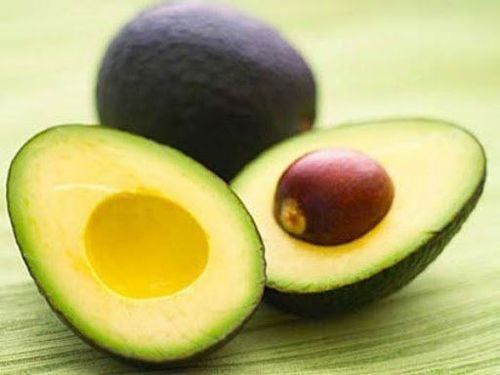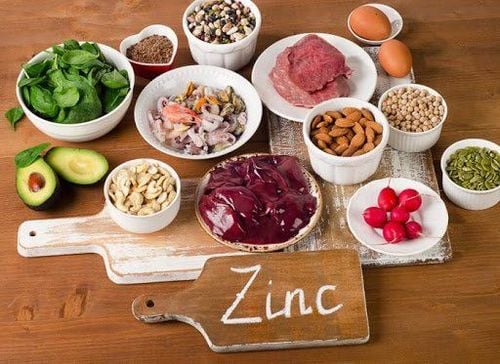The avocado can support children in completing their immune system, promoting brain development, achieving healthy weight gain, and providing antibacterial properties to minimize skin-related issues. These benefits can assist caregivers in addressing the inquiry regarding the health implications of avocado consumption for children.
1. Overview of the avocado
The avocado is a large tree that can reach heights of up to 20 meters. It possesses a thin skin and a large seed located at the fruit's center. This tree species is well-adapted to tropical and temperate climates.
Avocados are classified among nutrient-dense foods, containing proteins, carbohydrates, sugars, dietary fiber, and fats. Notably, avocados are rich in vitamins such as A, D, K, E, and B, along with other essential minerals.
A notable aspect of avocados' nutritional profile is the presence of monounsaturated fatty acids, a nutrient not commonly found in all plant-based foods.
Due to their rich nutrient content, daily consumption of avocados can confer numerous health benefits. Nevertheless, considering that young children have underdeveloped digestive systems, caregivers often question whether avocados are suitable for children.
2. Is avocado consumption good for children?
Avocados contain numerous nutrients beneficial for both adults and children. The health advantages avocados offer to children include:
- Avocados aid in promoting smooth and effective digestive processes. Constipation is a frequently encountered issue in children, particularly during the weaning phase. To alleviate this condition and enhance the child's digestive system, caregivers may incorporate avocados into the child's diet.
- Avocados support brain development in children: The nutritional composition of avocados is characterized by a high content of omega-3 fatty acids. These fatty acids play a crucial role in the development of the central nervous system in children. Introducing avocados to children during the weaning phase may significantly optimize their cognitive potential. Furthermore, avocados can enhance memory due to the synthesis of B vitamins.
- Avocados contribute to the maturation of the immune system: Approximately 14% of the potassium content in avocados is beneficial for the immune system of young children. In fact, the potassium levels in avocados exceed those found in bananas by over 60%. This information can help address the concern about the health benefits of avocado consumption for children.
- Avocados facilitate safe weight gain: Avocados are rich in beneficial fats for children's health. These fats predominantly comprise monounsaturated fats and do not contain cholesterol. Therefore, they can be considered a positive choice in children's diets, promoting gradual weight gain.
- Avocados may help reduce diaper rash and dermatitis: Children's skin is still delicate and vulnerable; thus, it can easily suffer damage from environmental factors or pathogenic bacteria. The antibacterial properties of avocados, including omega-3 fatty acids, carotenoids, and vitamins, can assist in minimizing skin-related ailments.
- Avocados promote fresher breath: Exclusively breastfed infants may experience sour breath during the first six months. However, introducing avocados can eliminate this sour odor. The components of avocados contribute to the cleansing of residual matter that has been digested in the child's gastrointestinal tract, resulting in fresher breath.

3. Is a high consumption of avocado beneficial for children?
Given the unique nutritional benefits associated with avocados, prudent consumption is crucial for achieving the desired effects. Parents should not assume that an increase in avocado intake correlates with greater nutritional advantages. Excessive avocado consumption may lead to gastrointestinal irritation, causing discomfort, bloating, and feelings of fullness in children. Additionally, avocados contain a considerable amount of collagen, which, if not adequately digested, may result in accumulation and potential hepatic damage. Therefore, parents are encouraged to administer avocados in moderate quantities to ensure sufficient nutrient intake for their children. If the child is undergoing medical treatment and taking medication, parental consultation with the treating physician regarding avocado consumption during this period is advisable.
Moreover, when introducing new foods to children, parents should adhere to the principle of initiating small portions and observing any reactions that may arise. Certain children may possess food allergy predispositions, manifesting symptoms such as dizziness, rash, nausea, or vomiting upon consumption. Furthermore, excessive intake of avocados may reduce levels of high-density lipoprotein (HDL) cholesterol in the body, as avocados can absorb these cholesterol types present in children.
Additionally, the timing of avocado consumption is significant in determining the health benefits derived from the fruit. Generally, a consumption of one-sixth of an avocado provides adequate nutritional value. Consequently, to maintain child health, parents may allow consumption of half an avocado daily, up to 2 to 3 times a week. Optimal timing for avocado consumption is typically in the morning or 1 to 2 hours prior to meals. It is recommended to avoid giving avocados in the evening due to their high plant fat content, which may lead to discomfort in children.
In summary, avocados are classified as a nutrient-dense food group beneficial for children's growth. To maximize the health benefits of avocados, parents should offer moderate amounts and avoid nighttime consumption.
To arrange an appointment, please call HOTLINE or make your reservation directly HERE. You may also download the MyVinmec app to schedule appointments faster and manage your reservations more conveniently.
To arrange an appointment, please call HOTLINE or make your reservation directly HERE. You may also download the MyVinmec app to schedule appointments faster and manage your reservations more conveniently.








